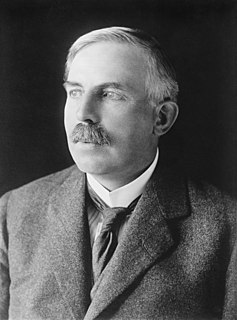A Quote by Isaac Asimov
At two-tenths the speed of light, dust and atoms might not do significant damage even in a voyage of 40 years, but the faster you go, the worse it is--space begins to become abrasive. When you begin to approach the speed of light, hydrogen atoms become cosmic-ray particles, and they will fry the crew. ...So 60,000 kilometers per second may be the practical speed limit for space travel.
Related Quotes
There is no dualism in the world of light. The conventions of relativity say that time slows down as one approaches the speed of light, but if one tries to imagine the point of view of a thing made of light, one must realize that what is never mentioned is that if one moves at the speed of light there is no time whatsoever... One exists in eternity, one has become eternal... One is then apart from the moving image; one exists in the completion of eternity.
From the results so far obtained it is difficult to avoid the conclusion that the long-range atoms arising from collision of alpha particles with nitrogen are not nitrogen atoms but probably atoms of hydrogen, or atoms of mass 2. If this be the case, we must conclude that the nitrogen atom is disintegrated under the intense forces developed in a close collision with a swift alpha particle, and that the hydrogen atom which is liberated formed a constituent part of the nitrogen nucleus.
Today, we know that time travel need not be confined to myths, science fiction, Hollywood movies, or even speculation by theoretical physicists. Time travel is possible. For example, an object traveling at high speeds ages more slowly than a stationary object. This means that if you were to travel into outer space and return, moving close to light speed, you could travel thousands of years into the Earth's future.




































